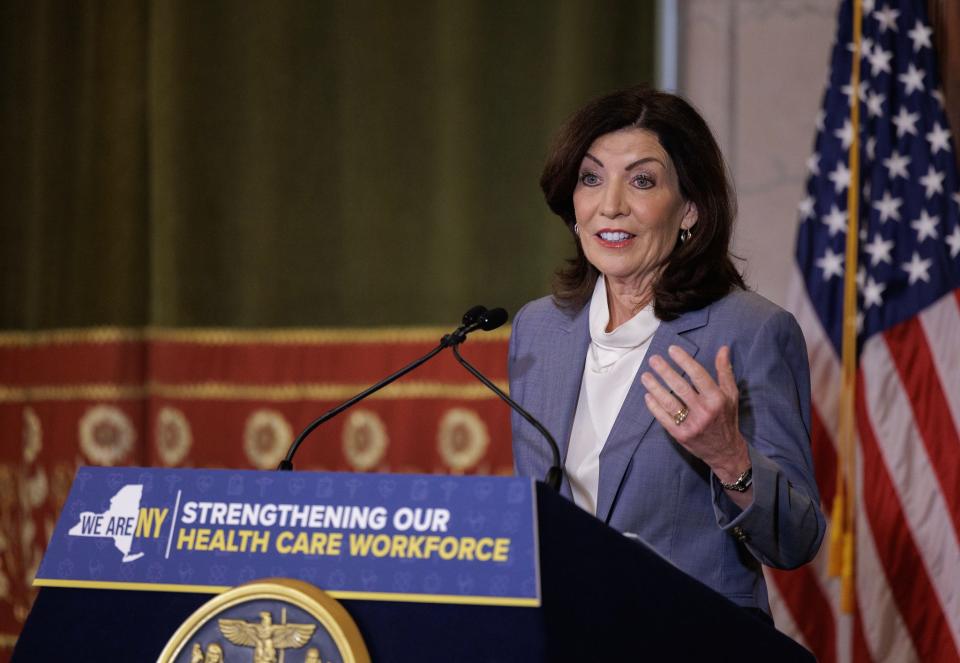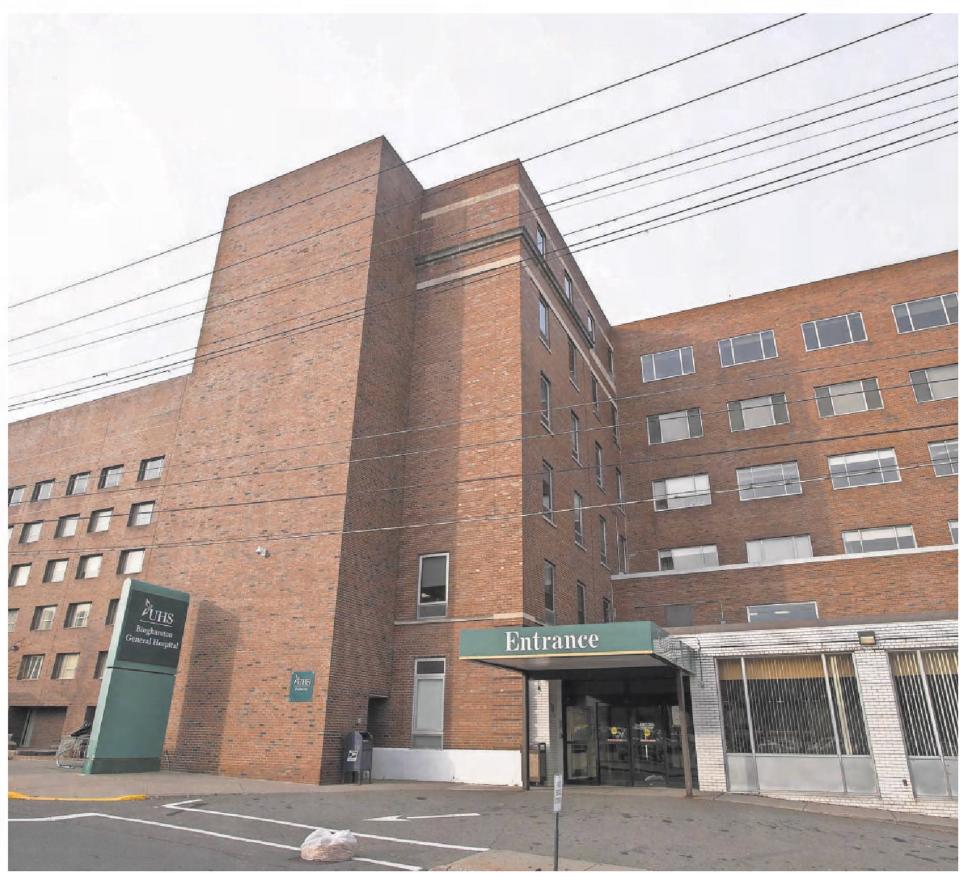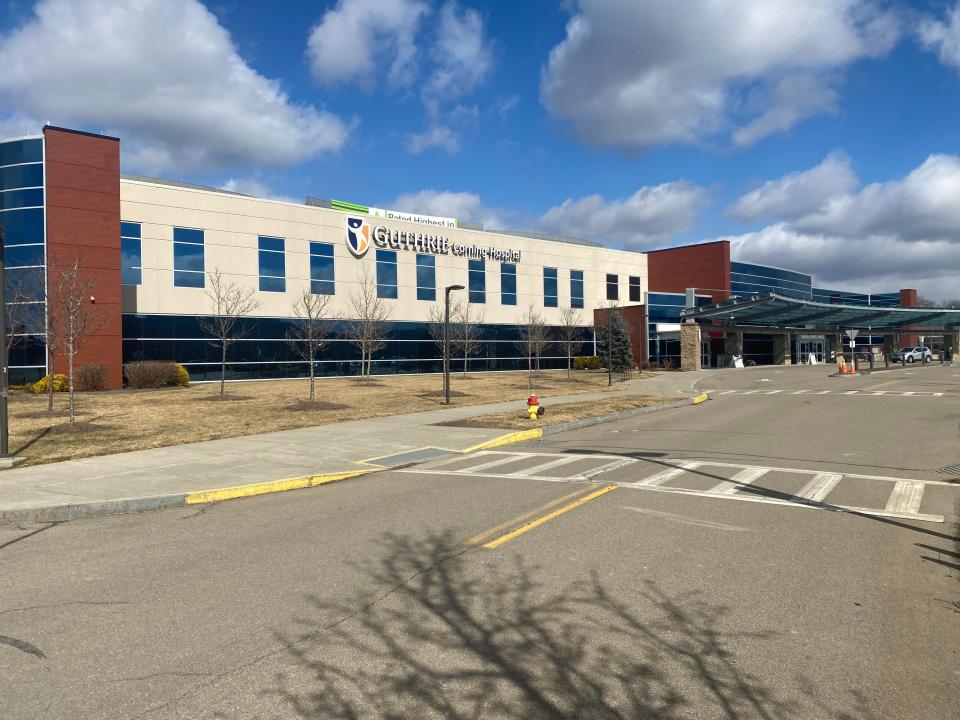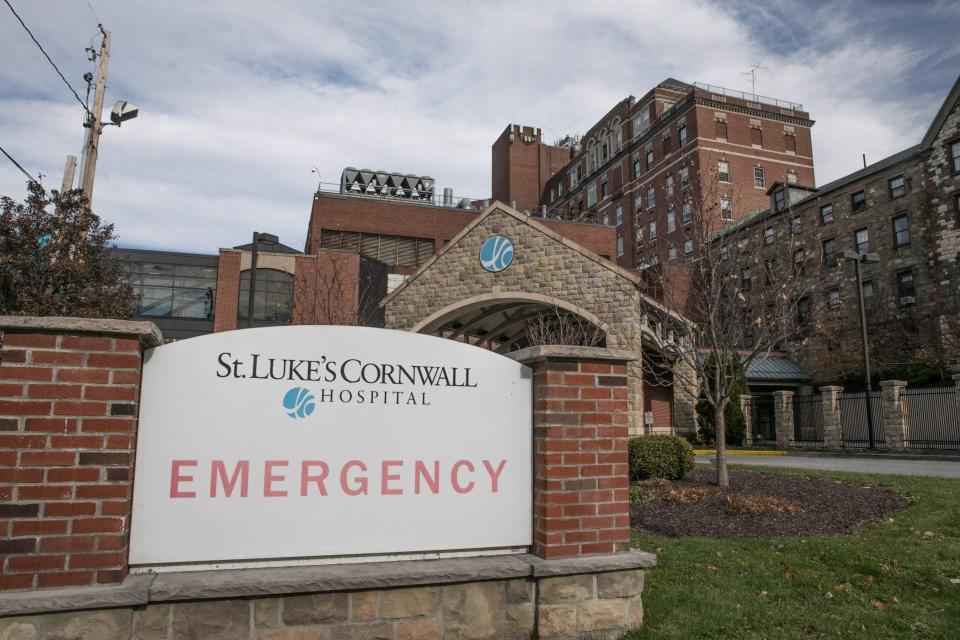Some NY hospitals nixed medical debt lawsuits. Others sued 1,600 patients for $9M
A group of 17 hospitals and health systems sued about 1,600 New Yorkers to collect medical debts totaling about $9 million since early 2022, despite efforts seeking to end the controversial practice, the USA TODAY Network found.
The lawsuits — which can disrupt lives and deepen suffering for patients battling illness — came after some other hospitals halted debt-collection lawsuits during the pandemic, as advocates and lawmakers pushed measures restricting medical-debt collections, according to a review of thousands of pages of court records.
In many ways, the cases embodied patients long-standing struggle with soaring health care costs, byzantine medical billing practices and systemic inequality within private and public health insurance plans.
When asked about the lawsuits listed in court records, some hospital systems denied they filed lawsuits or pointed to the charity care they deliver each year. Others said they were phasing out the practice of suing patients over medical debt.

Among the findings:
Many of the health systems that kept pursuing debt-collection lawsuits served low-income or rural communities across upstate.
The average amount of debt was about $5,700, an amount that could devastate some patients financially while offering relatively limited returns for health systems with hundreds of millions, or billions, of dollars in revenue per year.
Scores of cases also ended with patient no-shows in court and default judgments in favor of hospitals. That raises questions about how patients learned of the debt collection or potential violations of state law requiring financial-aid eligibility screenings and notification.
The hospitals that filed lawsuits are nonprofits — as required by state law — and receive tax exemptions contingent in part on meeting various requirements to care for poor and disadvantaged patients.
How NY is targeting the "worst side effects" of medical debt

At the same time, a series of state measures pursued since 2022 have attempted to limit debt-related harm to patients.
The efforts included a law banning the use of home liens and wage garnishments in medical-debt collections, as well as recently approved legislation that keeps medical debt from showing up on consumer credit reports.
Those measures targeted the “worst side effects” of medical debt, which currently plagues hundreds of thousands of New Yorkers, said Elisabeth Benjamin, the Community Service Society health policy expert.
“We’re trying to get rid of the symptoms of debt, but the disease itself is still unfortunately happening to some extent,” she said.

Which NY hospitals filed medical-debt lawsuits?
A months-long investigation by the USA TODAY Network New York analyzed court records filed since January 2022, revealing the newly reported details of health systems and hospitals filing medical-debt lawsuits.
The review excluded hospitals in New York City and on Long Island, though Community Service Society research shows many downstate hospitals either limited medical-debt lawsuits or halted them in recent years.
Health care: 26 hospitals in NY don't pay 'fair share' to justify tax exemptions, report finds. See the list
For example, the state's largest health system, Northwell Health, stopped its debt lawsuits in 2021 after filing thousands of cases against pandemic patients, as first reported by The New York Times.
Westchester Medical Center also appeared to halt its debt lawsuits following the USA TODAY Network reporting in 2019 on its connections to a debt-collection law firm under federal investigation. The health system recently declined to comment on the matter.
What follows are details of the hospitals and health systems that filed medical-debt lawsuits from January 2022 through June 1, 2023, according to the USA TODAY Network review.
Albany Medical Center: 528 lawsuits, seeking about $2 million.
Mohawk Valley Health System: 269 lawsuits, seeking nearly $1.7 million.
Ellis Hospital: 269 lawsuits, seeking about $1 million.
Arnot Health: 79 lawsuits, seeking about $940,000.
Glens Falls Hospital: 176 lawsuits, seeking about $750,000.
Nathan Littauer Hospital: 64 lawsuits, seeking about $370,000.
Kaleida Health: Nine lawsuits, seeking nearly $362,000.
Danbury Hospital (A Connecticut hospital along the New York border): 16 lawsuits, seeking nearly $360,000.
Erie County Medical Center: Eight lawsuits, seeking about $340,000.
Saratoga Hospital: 77 lawsuits, seeking about $300,000.
Wyoming County Community Hospital: seven lawsuits, seeking about $250,000.
United Health Services Hospitals: 24 lawsuits, seeking nearly $230,000.
Ira Davenport Memorial Hospital: 28 lawsuits, seeking about $161,000.
Guthrie: 29 lawsuits, seeking nearly $132,000.
Montefiore St. Luke’s Cornwall Hospital: 15 lawsuits, seeking about $58,000.
Soldiers and Sailors Memorial Hospital: two lawsuits, seeking about $39,000.
Ellenville Regional Hospital: Five lawsuits, seeking $30,193.
Some of the lawsuits are connected to providers and entities, such as nursing homes, that are affiliated with the health system.
Further, some other hospitals that pursued medical-debt cases through other entities or affiliates may also not appear on the list.
Upstate University Hospital, for example, pursued lawsuits in connection with the Attorney General's Office and previously sued more patients than any other hospital in the state, according to Community Service Society research. Upstate Hospital didn't appear on the search of lawsuits from 2022 to 2023, suggesting it halted lawsuits or filed them under a different name or affiliate.

What factors play into medical debt in NY?
The myriad factors fueling medical debt are weaved into the complex web of problems plaguing the health care system in New York and nationally.
Patients increasingly face soaring health insurance costs, high-deductible plans, limited coverage networks or all the above.
Politics: NY greenlights bill keeping medical debt from harming credit reports. What it means
The price of care, which varies widely among providers, can also be difficult to determine and drive confusion before, during and after medical emergencies, despite protections against surprise medical bills.
Further, about 1 million New Yorkers, or 5% of the state, remained uninsured heading into the pandemic, a number that shrank slightly due to temporary Medicaid renewal waivers that are now ending.
Racial and economic disparities driving health inequality also impact debt collections, said Benjamin, whose advocacy group highlighted medical-debt wage garnishment cases in a report last year.
“The hospitals are disproportionately suing in low-income neighborhoods and minority neighborhoods,” she said.
The hospitals that halted lawsuits, she added, realized the comparatively small returns didn’t justify the effort and bad publicity it often elicited.
“(The lawsuits) are so tiny compared to how much margin a hospital needs,” Benjamin said, “so why even do this?”

What NY hospitals say about medical debt lawsuits
Some of the health systems seemingly filed medical debt lawsuits under limited circumstances, such as complications with Medicaid eligibility or nursing home bills. Those limited cases involved some of the highest debt amounts, topping $100,000 each in some cases.
Other health systems, such as Albany Medical and Mohawk Valley Health, filed hundreds of lawsuits each for smaller average amounts. That approach suggested a more widespread use of courts to collect debts.
Medical debt: NY ends home liens, wage garnishments in medical-debt collection. What you should know.
USA TODAY Network contacted all 17 hospitals and health systems via email or phone seeking comment on the medical debt court records, and only three responded. The three providers — Guthrie, United Health Services Hospitals, or UHS, and Montefiore St. Luke’s Cornwall — all declined interviews and issued statements.
Montefiore St. Luke’s, which serves Hudson Valley patients, said in a statement that it follows state laws and regulations for medical debt collections. In response to USA TODAY Network questions, the system said Monday its "current policy" prohibits filing lawsuits to collect medical debts.
Officials at Guthrie, which serves patients in New York's Southern Tier, asserted their system overhauled debt-collection policies in late 2021, including setting a goal of ending lawsuits by July 2022 — which court records suggest was achieved. The statement added Guthrie offers a range of financial aid programs, as well as payment plans and other assistance.
"No one is denied care at Guthrie due to an inability to pay," they added.
Officials at UHS, which includes hospitals in the Binghamton area, noted the system is “the most significant safety net of healthcare services in the Southern Tier, including providing care for tens of thousands of needy and medically indigent patients.”
They noted UHS provided nearly $61 million in uncompensated and charity care, including zero-interest financial assistance to patients in need, in the past year.
The UHS system, they added, is continuously reviewing its “policies, practices and overall approach to assist patients and their family members with all aspects of care, including their financial obligations.” They noted UHS does not garnish wages or pursue home liens in medical debt collections in accordance with state law.
In contrast, Rochester Regional Health, didn’t file medical debt lawsuits during the time span reviewed by USA TODAY Network.
The system “stopped pursuing legal action on hospital debt at the start of COVID and ultimately made the decision to leave it that way,” Rochester Regional officials said in a statement.
The statement added the system provides health care, “regardless of a person’s ability to pay.”
Patients at Rochester Regional are also screened according to financial policies and procedures, the statement added, and the system has a team that helps uninsured and underinsured patients to “find ways to obtain coverage and work out payment options.”
This article originally appeared on New York State Team: Some NY hospitals axed medical debt lawsuits. Which ones kept suing?

